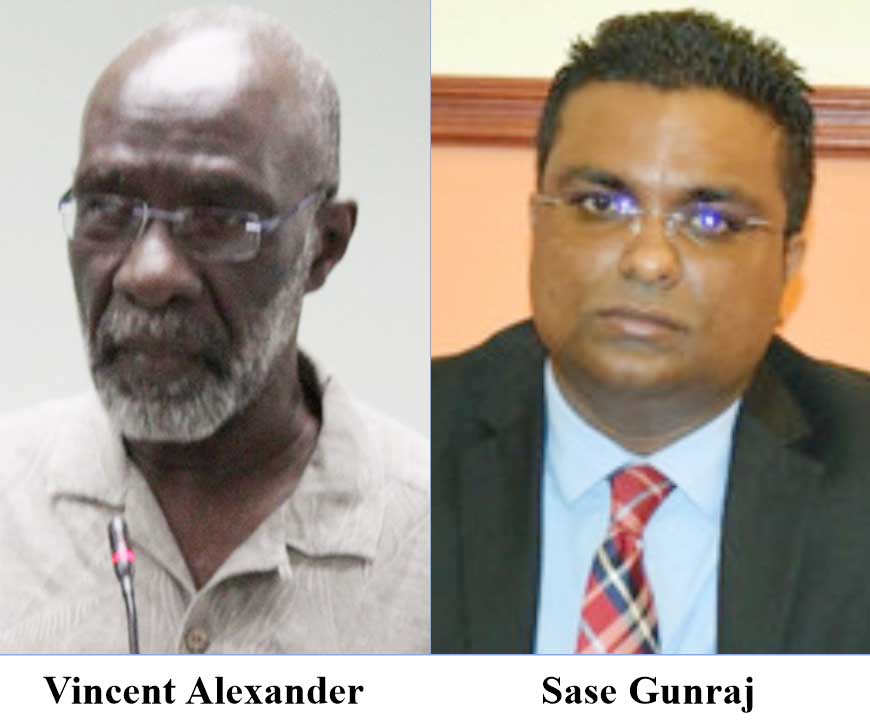CARICOM is once again being invited to be present at a recount of the ballots cast in the March 2 General Elections, this time by GECOM itself.
“The idea is to see if we can still get CARICOM involvement not as supervising the count but as a presence that can give some credibility and validation to what GECOM does,” Government-nominated Commissioner Vincent Alexander told reporters yesterday following a five-hour meeting of the Commission.
Asked if any of the other international observers will be invited for the same purpose, Alexander said it was decided that “in terms of an external body to give some validation, it’s CARICOM.”
Other external bodies such as the Common-wealth, European Union and Carter Center will be “observers” but validation of the process will come from CARICOM, he further clarified.
While the Guyana Elections Commission (GECOM) will tomorrow discuss an operational plan for the implementation of the recount there is no concrete position on the possible start time of the recount and current global restrictions on travel over the coronavirus might affect the availability of some observers.
“Considering issues such as COVID-19 and such perhaps observers should indicate to us whether they would be available for the process,” Opposition-nominated commissioner Sase Gunraj said.
The recount is at the centre of a raging crisis over the elections that has seen accusations of rigging directed at key members of the GECOM Secretariat and warnings from the international community that sanctions could be applied if the tabulation was not credible and a President was sworn in on that basis.
It has been proposed that the recount should be televised or live streamed on social media to allow for transparency but Guyana’s laws prescribes that every person attending the counting of votes shall maintain and shall not communicate any information obtained at the count as to the list of candidates for which any vote has been given.
President Granger had contacted CARICOM Chair, Prime Minister of Barbados Mia Mottley, and agreed for a recount to be done following controversy over the tabulation of the votes cast for Region Four, which opposition parties as well as international and many local observers say was not done in a transparent and credible manner.
Following the president’s request, Prime Minister Mottley had put together what she describ-ed as an independent high-level CARICOM team, which traveled to Guyana to supervise the recount. This was, however, aborted after the High Court granted an injunction against the recount. These injunctions have since been discharged and the Appeals Court ruled on Sunday that while the Commission could order a recount it could not delegate its “supervisory” powers to an external body.
This ruling clears the way for the long-delayed elections process to finally be concluded if and when the Commission settles on all modalities. To this end the Commission yesterday gave “some instructions” to Chief Election Officer (CEO) Keith Lowenfield which should result in the drafting of an operational plan for the proposed recount.
This plan is to be presented at the next commission meeting scheduled to be held tomorrow at 11 am.
Guidance
On Friday, Lowenfield requested guidance from the Commission on a number of legal and procedural issues in relation to the recount before he could proceed to operationalise the decision.
Alexander had told media that some of the matters which Lowenfield wished to have clarified related to the type of recount: whether it would be merely a numerical recount or consideration of everything within the ballot boxes.
He said that since the recount was to be operationalized under Article 162 (1) (b) of the Consti-tution of Guyana rather than the Representation of the People Act then Sec-tion 84 of the Act which details the methodology of a recount was unlikely to be used.
Alexander however has expressed a preference for the recount to mirror a general final count as described in the section.
Section 84 (6) specifies that where a general final count is conducted, the Returning Officer shall review all used ballot papers, including rejected ballot papers, received from all polling places.
Alexander stressed that the examining of proxies, ballots which were deemed to be without stamps and all other ballots in the boxes will be part of the recount. He further said that the process will not entail the use of Statements of Poll rather a similar document will be developed.
He noted that the meeting was an internal discussion of nine points which required consensus.
According to Gunraj these and other matters raised by Lowenfield were satisfactorily settled at the meeting.
“It took us quite a while to provide guidance in as explicit a manner as we can…we went through each and every one of the concerns [and] as we left this afternoon he confirmed that he had the clarity he needed,” Gunraj said.
He added that matters addressed included the reporting mechanism for the recount and the role of the commission in the resolution of disputes arising from the process.
According to Gunraj a matter which remains unsettled is a proposal for Region Four Returning Officer Clairmont Mingo to be replaced since he “has led us to this position.”
He noted that Section 22 of the Elections Laws (Amendment) Act grants the commission the power to decide the modalities and methodology of the count.
The section provides that if any difficulty arises in connection with the application of any elections legislation the Commission shall, by order, make any provision, including the amendment of the said legislation that appears to the Commission to be necessary or expedient for removing the difficulty.






